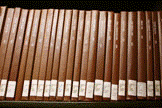Anthropology, Department of

Department of Anthropology: Theses and Student Research
First Advisor
William R. Belcher
Committee Members
LuAnn Wandsnider, Elizabeth Clausing
Date of this Version
5-2025
Document Type
Thesis
Citation
A thesis presented to the faculty of The Graduate College of the University of Nebraska in partial fulfillment of requirements for the degree of Master of Arts
Major: Anthropology
Under the supervision of Professor William R. Belcher
Lincoln, Nebraska, May 2025
Abstract
Accurately identifying gunshot trauma (GST) in forensic anthropology remains a significant challenge, particularly in distinguishing the effects it has on decomposition. This study investigates how different types of gunshot trauma influence the rate and characteristics of decomposition in a humid continental climate, specifically southeastern Nebraska. Utilizing Sus scrofa domesticus (domestic pigs) as human proxies, four pigs were euthanized by professionals and subjected to controlled conditions at the Reller Prairie Field Station. Three pigs were inflicted postmortem with close-range gunshot trauma using a 9mm handgun, a 12-gauge shotgun, and an AR-15 rifle, while a fourth served as a trauma-free control. For the study, environmental factors, scavenger activity, and trauma patterns were meticulously documented through decomposition and skeletal analysis. The research aimed to determine whether the number and type of ballistic wounds would accelerate decomposition and influence the visibility of skeletal trauma post-decomposition. Findings suggest that trauma presence and type, combined with climate variables and scavenging, significantly impact decomposition rate and the preservation of trauma evidence. The purpose of this study is to contribute to forensic anthropology by contextualizing trauma analysis within regional climate conditions and offering insight into decomposition variability related to gunshot trauma.
Advisor: William R. Belcher
Included in
Biological and Physical Anthropology Commons, Forensic Science and Technology Commons, Social Statistics Commons


Comments
Copyright 2025, Alexandra C. Tieken. Used by permission